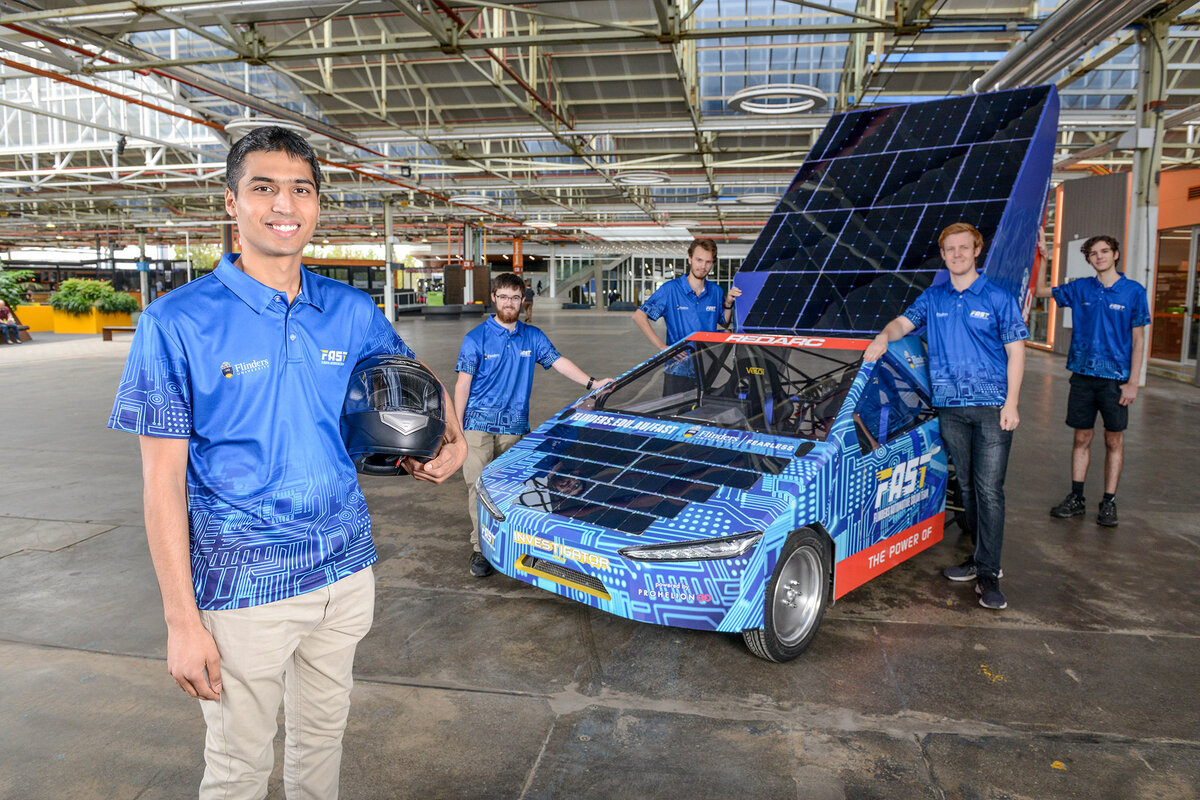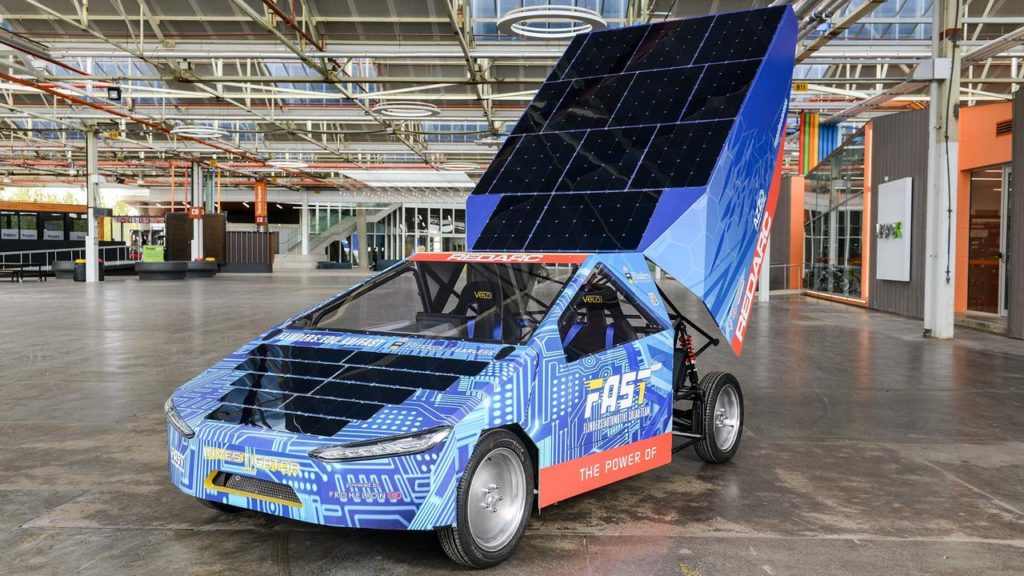
A team of international and domestic student engineers at Flinders University are incorporating innovative solar and battery technologies into a new design of the Flinders Automotive Solar Team (FAST) car, Investigator IV, competing in the 2023 Bridgestone World Solar Challenge from Darwin to Adelaide.
With the race only a year away, FAST today revealed the futuristic car they plan to drive 3,000 kilometres with a range of high-tech and automotive technologies thanks to an industry collaboration with Lonsdale-based manufacturer, REDARC Electronics.
FAST is looking towards the future of solar car technology, the South Australian renewable energy industry and job opportunities for students with their latest vehicle concept, which is based on a design moulded for the requirements of the cruiser class in the iconic South Australian race, to be held on 20-27 October 2023.
‘Being part of the solar car program has given me the opportunity to learn industry-standard software used in engineering, such as modelling and 3D simulations. I have been able to apply my engineering skills to real world problems whilst also maintaining proper engineering documentation, which are highly sought-after skills in industry,’ says Flinders University engineering student Nishant Bazzad.

The university’s industry collaboration with REDARC Electronics is also producing a solar model kit inspiring the next generation of renewable technology engineers and STEM educators in South Australian schools, which is being rolled out later in 2022.
Signing on to support Flinders FAST and the Flinders Solar Program as a Platinum Partner for the next five years, REDARC Electronics Managing Director, Anthony Kittel, says the program’s focus on innovation and renewable energy in South Australia is one that closely aligns with REDARC.
‘We’re excited to partner with Flinders University on these two innovative programs. The focus on innovation and environmental sustainability plus the opportunity to help develop the skills of young South Australians resonates with REDARC’s values. We look forward to providing continued support for the FAST team leading up to next year’s competition,’ says Mr Kittel.
FAST Project Manager and Senior Lecturer in Digital Technologies at Flinders University, Andrew Marshall, says the 2022 design of the solar car incorporates new battery and solar technologies with an improved battery management system ensuring reliability during the endurance race.
‘The student led engineering team is increasing the battery capacity by almost double and solar efficiency by 30 percent, while making the car lighter and improving driving performance by decreasing rolling resistance, increasing aerodynamics and range, while improving handling which together will produce a significant increase in the performance of the car,’ says Mr Marshall.
Flinders University’s Vice-Present (Corporate Services), Mark Gregory, says the FAST project is an excellent opportunity for our students to learn how to integrate solar and battery technologies in a real-world engineering challenge. The whole program is both fun for our students and completely in line with our sustainability goals as a university. Flinders has already begun the transition of our entire fleet of vehicles to electric and our campus is using 100% renewable electricity generated on campus or here in South Australia.’
FAST Investigator IV Quick Stats
- Top Speed: 130 km/h + to be tested
- Range: Estimated at 1200km’s + on a single charge
- Weight: approx. 615kgs
- Solar Capacity: 1.1 Kw – capable of providing up to 160 km additional range per day
- Solar Cell Count: 273 SunPower Max Cells
- Innovative Technology:
-
-
- Ultra-lightweight body shell
- 390 Nm YASA motor (Yasa now owned by Mercedes for addition to their E fleet)
- compatible with “type 2” public AC charging infrastructure.
- Approximately 51 Kw of batteries, made up of 4,312 cells on board similar to type used in a number of early Tesla vehicles
-




